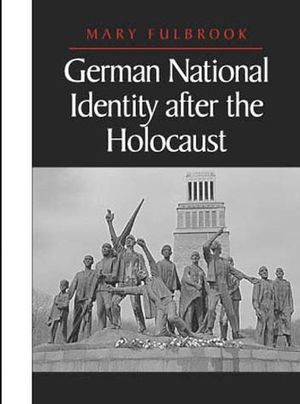German National Identity after the HolocaustISBN: 978-0-7456-1045-0
Paperback
256 pages
August 1999, Polity
 This is a Print-on-Demand title. It will be printed specifically to fill your order. Please allow an additional 10-15 days delivery time. The book is not returnable.
|
||||||
<!--end-->'This is a remarkable book, resting on
historical scholarship of the highest order, rich in ideas and
highly nuanced in approach.' Journal of European Area
Studies
'An expert dissection of German national identity since 1945,
and the role that historians have played in its formation,
deformation and reformation ... Fulbrook writes with wit about the
East German leadership's forlorn efforts to manufacture a
supportive past ... She is sceptical of grand notions about
collective memory, preferring to identify micro-communities each
with its own sense of the past. Here the divergence between the
official and the vernacular discourse of memory is starkest, a gulf
that Fulbrook can illustrate thanks to her unrivalled knowledge of
East German social history.' David Cesarani, The Times Higher
Education Supplement
'In her discussion of these issues Fulbrook displays her
enviable capacity for rendering complex ideas in an easily
accessible form. Indeed, this accessibility, combined with
Fulbrook's ability to summarize and reflect upon the pre-existing
literature in such judicious fashion, is the chief strength of this
book as a whole.' German History
'Despite the complexity of the subject, Fulbrook succeeds in
presenting a clear and fascinating account of national identity
formation in the two German states after 1950, exploring new
avenues of thought and combining public and private views of the
past and its consequences for the present to create a new approach
to our dealings with the question of national identity.'
European Review of History
'Fulbrook's achievement is to bring out both individual
experience and the importance of historical contingency in
examining questions of national identity. Above all, the book
suceeds in drawing together stark first-hand accounts, by both
perpetrators and victims, of life and death in a concentration
camp, with their subsequent recontextualizing within the discourses
of shame and blame in the two post-war Germanys.' Patterns of
Prejudice
'All three groups of intended readers - students, established
scholars, and interested members of the public - should find this
book rewarding, stimulting, and at times controversial reading. The
overall analysis is persuasive, judicious, and marked by
considerable empathy.' Canadian Journal of History
'Fulbrook's tour de force is an informative read for anyone who wishes to educate themselves authoritatively about the "German debates" of the last decade.' Journal of Contemporary Histor



